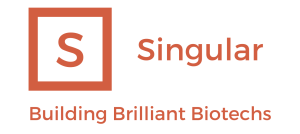YOUR BIOTECH INTERVIEW
Advice from a biotech interviewer
If you’ve been invited to a non-technical interview, the format of your interview will fall into two categories: unstructured or structured.
Many larger (or more corporately rigid) companies use a structured interview process where each candidate is asked the same set of questions without deviation. In less formal organisations, the unstructured interview is quite common, and is a more relaxed, ‘let’s see where this takes us’ conversation.
It can be daunting to prepare for a non-technical interview. How can you prepare for an interview if you don’t know what I might ask you about?
It helps to understand that in a structured non-technical interview, the aim isn’t to ask you random, unfathomable questions. There are three main types of questions, tied into the role requirements, and most of which you can easily prepare for
Competency based questions
Competencies are the skills and knowledge typically gained from education and training. They are role-specific, observable and measurable skills and abilities that you will have learnt and practiced in your previous roles/academic experience.
WHAT ARE COMPETENCY QUESTIONS EVALUATING?
The main thrust of these questions is to test if you have the specific knowledge, skills, and attributes required to do the job. An internal subject matter expert will probably lead this part of the interview, assessing you against the core requirements of the role.
Our aim is to weed out those who have an impressive CV but insufficient depth of knowledge or skill where we need it. We’re establishing if you have the skills and knowledge to perform the main aspects of the job well and efficiently.
EXAMPLES
- Describe a time when your assay results were not as expected. What variables did you investigate as the cause of these results?
- Give me an example of a major piece of written work you have produced. How did you approach the task?
- Your instrumentation fails mid-way through an analysis. Talk me through how you would trouble-shoot the problem.
HOW YOU CAN PREPARE
Use the job description as a road map for the questions you might be asked.
Identify the role-specific aspects of the job description and prepare to highlight how you meet and exceed the requirements in those areas (these are typically scientific/technical requirements, known as ‘hard skills’).
Behavioural questions
Behavioural questions focus on your beliefs and attitudes and how they drive your behaviours. Your interviewer will probably be someone like me (HR’s Talent Acquisition) or an experienced hiring manager.
NB: Competencies and behaviours directly influence each other, so you may find some behavioural questions overlapping with the competency questions.
WHAT ARE BEHAVIOURAL QUESTIONS EVALUATING?
I want to understand how you’ll conduct yourself in the job. I’ll be asking about things that you’ve done in the past because I’m using your past behaviours as a predictor for your future behaviours.
There aren’t necessarily right or wrong answers to these questions, but I’m looking at the way you operate and your ‘soft skills’. For example, I might be assessing factors like motivation, adaptability, self-confidence, resourcefulness, and interpersonal skills. These help me understand your values, your character, how you approach challenges, and ultimately whether you’ll be a good fit for the team.
EXAMPLES
- Describe a time when you have disagreed scientifically with a more senior colleague. How did you handle it?
- Describe a time when you have brought people together to achieve a project goal. What were the challenges? How were you personally instrumental in fostering teamwork?
HOW YOU CAN PREPARE
Understand as much as you can about the company’s values and culture – your mission is to understand the personality of the company. Look through their website, their LinkedIn page, Twitter, YouTube, and even their Instagram.
Once again, the job description is your friend. Most job descriptions describe the personal qualities needed for the job, and this can give you clues for the behavioural based questions.
For example, if the job description requires good time management skills, prepare to highlight your positive time management skills and also prepare an example of when your time management was lacking.
If you want to really impress, tie it all together by describing:
- A time where you failed because of your poor time management.
- What you learnt from that failure.
- How you developed and implemented successful time management skills as a result.
- How you successfully applied these new skills to another situation.
Situational questions
These are hypothetical questions about scenarios that don’t draw on specific experiences – they allow me to explore your approach, even if you haven’t faced that specific issue.
WHAT ARE SITUATIONAL QUESTIONS EVALUATING?
I’m investigating your approach to complex situations you might encounter at work – again, there isn’t a right or wrong answer.
I’ll be looking at how you respond to different scenarios: When faced with new situations, are you collaborative, do you take the lead, do you go to the data first or to people? Are you excited by unexpected experimental results, or do they frustrate you?
EXAMPLES
- What would you do if you had made a mistake that nobody else noticed, and other teams were already basing their experiments on your data?
- The lab needs you to implement a new analytical process and instrumentation. It’s outside your knowledge and experience – how do you approach it?
- How would you tackle a situation where two influential and senior stakeholders were pulling your experimental work in different directions?
- How would you handle a change to commercial direction that meant your work from the last six months will be scrapped?
HOW YOU CAN PREPARE
It’s trickier to prepare for these types of questions. They can be about anything, and they can be quite off-the-wall.
Try to understand the profile for the ideal candidate, and what attributes would make a great fit with for that company. Highlight yourself as a match for those positive attributes. For example, if the candidate profile requires teamwork, ensure your answers to these hypothetical questions show that you are collaborative, supportive, and encourage others toward the team goals.
Setting you up for success
Recruitment can be a lengthy and expensive process for companies. It’s my job to expedite that process so we can quickly bring your support and expertise onboard. You’re part-way there if you’ve been invited to an interview – you’re already ticking boxes as a potential fit.
As an interviewer, I’m rooting for you! I want you to succeed, and to show yourself in the best light. I’m not expecting you to answer every question perfectly. Don’t overthink it if you make a mistake – how you recover can give me a very positive view of who you are.
Interviewing is my bread and butter, so I understand that you’re nervous and that interviews can be super stressful. I’ll be working to try to put you at ease, so you can relax and showcase all the amazingness that is uniquely you!
 Prep is key
Prep is key
Prepare well. Make them really want you onboard.
~Fiona







Leave A Comment